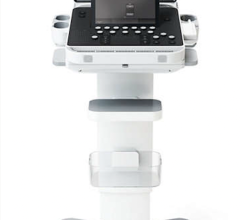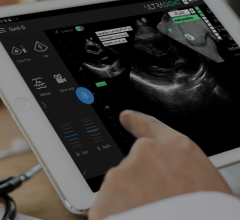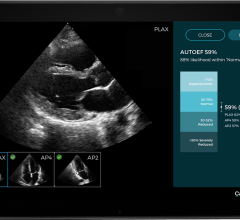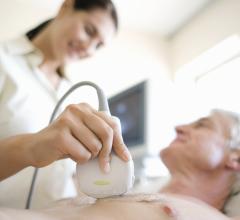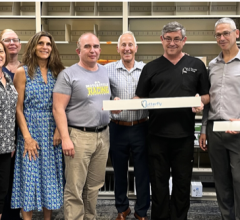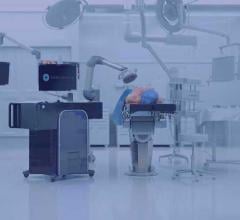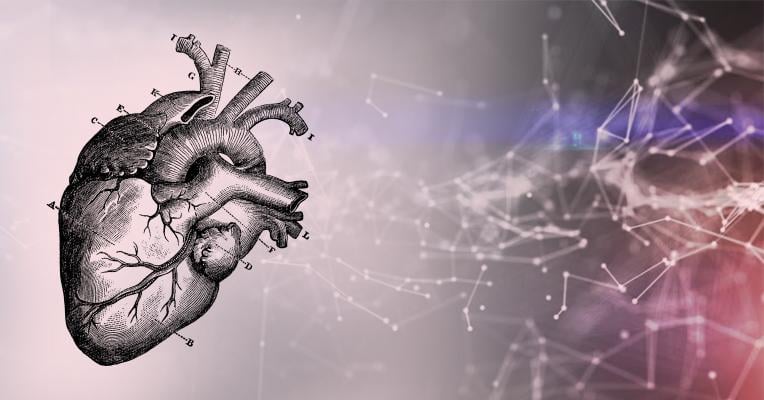
March 15, 2019 — Artificial intelligence (AI) company Bay Labs announced the presentation of two studies assessing performance of the company’s deep learning software for cardiovascular imaging. The first evaluated the software when used by medical professionals with no prior ultrasound experience to acquire diagnostic-quality echocardiograms, and the second evaluated the fully automated calculation of ejection fraction (EF) with accuracy and increased reproducibility. Results from these studies will be presented at the American College of Cardiology (ACC) 68th Annual Scientific Session, March 16-18 in New Orleans.
An ongoing prospective study conducted at Stanford University is assessing the use of deep learning software to aid in cardiac function monitoring in cancer patients undergoing treatment with potentially cardiotoxic therapies. Bay Labs’ EchoGPS and AutoEF software are being used in the study to aid in the acquisition of limited views of a standard echocardiogram by providing users with no prior ultrasound experience real-time guidance to obtain cardiac views, and to automatically calculate a left ventricular EF. Cardiac function monitoring for cardiotoxicity caused by cancer treatments is recommended for at-risk patients, however such screening remains underutilized. While these tools are not yet U.S. Food and Drug Administration (FDA)-cleared or approved for these purposes, the preliminary data assess these products for this potential future use.
Alberta Yen, M.D., Division of Cardiovascular Medicine, Department of Medicine, Stanford University, will present preliminary study results demonstrating a strong potential use of EchoGPS and AutoEF in a busy cancer clinic for cardiac function monitoring. To date, 37 patients have undergone echocardiograms performed by novices, including oncologists and nurse practitioners in the oncology clinic, with EchoGPS and minimal supervision, with 100 patients planned in this prospective study. The AutoEF software deemed 76 percent of the studies of sufficient quality to generate an EF measurement, and the root mean square deviation in EF was 4.8 percent between AutoEF and echocardiographers. This suggests that the AutoEF measurements may be accurate when calculated from studies gathered using EchoGPS.
“Results from our study suggest that future use of these technologies could enable clinicians to provide expanded access to cardiac monitoring in cancer patients,” said Yen. “Machine learning-based technology shows promise to expand access to screening echocardiography without overburdening echocardiography labs.”
This study aimed to test the accuracy and reproducibility of an investigational update to Bay Labs’ AutoEF software for automated calculation of EF based on deep learning technology. Although EF is the single most clinically relevant parameter reported in echocardiography, high variability between readers limits its reliability.
Three expert cardiologists assessed EF of 99 patients that had imaging done as part of their routine evaluation, and their assessments were compared to the output of Bay Labs’ deep learning algorithm for automated calculation of EF (AutoEF). Cardiologists analyzed biplane tracings performed by three sonographers and AutoEF made its prediction from the clips selected by the sonographers. Accuracy between the investigational software and the average cardiologist prediction was 5.97 percent measured as mean absolute deviation (MAD). Reproducibility of EF calculations was best for AutoEF (2.94 percent MAD), compared to that of the cardiologists (4.74 percent MAD) and sonographers (6.96 percent MAD), which was calculated by comparing the mean absolute deviation of the three EF measurements from the sonographers, cardiologists and AutoEF. Federico Asch, M.D., FACC, FASE, director of the Echocardiography Core Lab at MedStar Health, concluded that automated calculation of EF using the investigational deep learning algorithm is accurate compared to expert cardiologists and that future use of these algorithms may improve accuracy and reproducibility. Asch will present the study at ACC.19.
For more information: www.baylabs.io

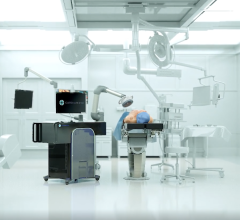
 April 05, 2024
April 05, 2024 
